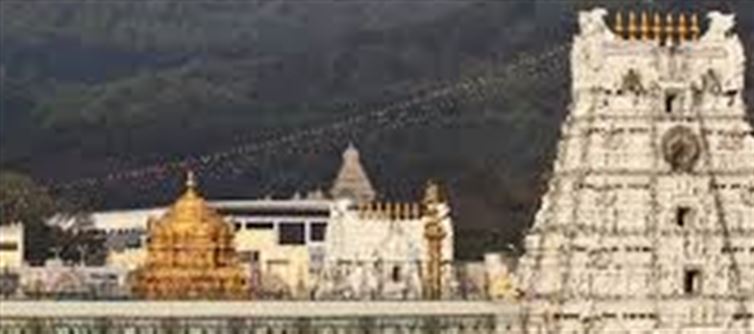
The Tirumala tirupati Temple, one of India’s most renowned religious landmarks, is set to make a historic leap into the future by integrating artificial intelligence (AI) to streamline its management and improve the pilgrimage experience. This groundbreaking initiative will make the temple the first AI-enabled religious site in the country. Here's a look at what this technological advancement means for devotees and the temple:
1. AI Command Control Center for Crowd Management
One of the key components of this transformation is the establishment of an AI-enabled command control center. This system will use advanced algorithms and machine learning to track and manage crowds of devotees more effectively. By monitoring real-time data on the number of visitors and their movements, the AI system can predict crowd density and take timely actions to ensure smooth and safe pilgrimages.
2. Managing Peak Pilgrimage Times
During major festivals or religious events, the temple often sees a surge in visitors. This AI system will help in managing high footfall periods by automatically optimizing the flow of devotees and ensuring that there is no overcrowding. Smart scheduling and real-time adjustments will enhance the overall experience for the pilgrims, reducing long wait times and enhancing their spiritual visit.
3. Personalized Experience for Devotees
Using AI and data analytics, the temple will also be able to offer personalized services to devotees. For example, based on their preferences and historical visits, the system can recommend specific rituals, darshan timings, or even offer prayer assistance. Pilgrims may receive notifications about the best times to visit, ensuring they can plan their visit to avoid peak hours and enjoy a more peaceful experience.
4. Enhanced Security and Safety
Safety is a top priority at any religious site, especially at places like the tirumala tirupati temple where large crowds gather. With AI, surveillance systems can be integrated to provide real-time monitoring for any security concerns, such as accidents or disturbances. The system can also assist in locating lost children or provide emergency alerts to security personnel in the event of a medical crisis or crowd-related incidents.
5. Smart temple Management
The AI-enabled infrastructure will also enhance the overall management of temple operations. Automated systems will help in resource allocation, maintenance tracking, and staff management, making operations more efficient and less dependent on manual oversight. It will ensure that the temple functions smoothly, from the upkeep of its premises to optimizing temple services like prashad distribution and queue management.
6. Real-time Data Analytics for Better Decision-Making
The AI system will collect and analyze vast amounts of data, from visitor behavior to temple operations. This data will help temple authorities make informed decisions about future improvements, such as expanding facilities, enhancing offerings,
Disclaimer:
The views and opinions expressed in this article are those of the author and do not necessarily reflect the official policy or position of any agency, organization, employer, or company. All information provided is for general informational purposes only. While every effort has been made to ensure accuracy, we make no representations or warranties of any kind, express or implied, about the completeness, reliability, or suitability of the information contained herein. Readers are advised to verify facts and seek professional advice where necessary. Any reliance placed on such information is strictly at the reader’s own risk..jpg)




 click and follow Indiaherald WhatsApp channel
click and follow Indiaherald WhatsApp channel